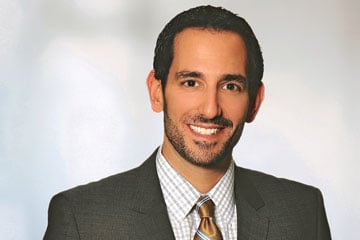
The Progressive Conservative leader has promised to “clean up the hydro mess” by firing the chief executive and the board of Hydro One, although there may be difficulties in that the province no longer has majority control of the publicly traded company.

The Progressive Conservative leader has promised to “clean up the hydro mess” by firing the chief executive and the board of Hydro One, although there may be difficulties in that the province no longer has majority control of the publicly traded company.
Doug Ford also promised to reduce electricity rates by 12 per cent by using the province’s share of dividend revenue from its Hydro One share.
The Liberals and the NDP have their own pledges to reduce rates in order to attract votes in the June 7 election. The Liberals are promising to continue with lowering rates, and the NDP says it can achieve this objective as well by having the province take over full ownership again of Hydro One.
For the energy sector in the province, however, there is uncertainty again about whether any of these platforms will create stability and ensure that longer-term plans that meet infrastructure needs will emerge out of the political promises.
“We can’t seem to have an adult conversation about energy and investment,” says Ian Mondrow, a partner at Gowling WLG in Toronto who leads the firm’s energy regulation and policy practice.
“We have aging infrastructure. If you want a reliable system, you have to spend money,” he says.
Much of the political rhetoric and media coverage of energy issues and costs are an “artificial debate,” Mondrow says. “They are not a reflection of the choices we have to make.”
Last fall, the governing Liberals unveiled a revised Long-Term Energy Plan that was originally introduced in 2010 and revised in 2013.
The plan was billed as a 20-year road map for the energy sector and highlighted the phasing out of coal-fired electricity generation as well as significant cuts to consumer electricity rates. It included promises to refurbish 10 of the province’s 18 nuclear generation facilities by 2033. In the short term, it projected adequate electricity supply but potential shortfalls beginning in the early to mid-2020s.
The plan also predicts a sharp increase in the use of electric cars, with as many as 2.4 million of this type of vehicle on the road by 2035. As well, there is a directive for an increased role for Indigenous peoples in future energy projects.
Overall, the 2017 version of the Long-Term Energy Plan “is less ambitious than the first two in 2010 and 2013,” says Elliot Smith, a commercial partner at Osler Hoskin & Harcourt LLP in Toronto.
“There is less about specific projects for the system and more about consulting and the planning process,” says Smith, whose practice focuses on energy and infrastructure issues.
He says the difference in focus is likely because of the upcoming election.
“There is legitimate sensitivity about the cost of power. The current plan is trying to mitigate the impact on cost,” says Smith. At the same time, there may be opportunities for smaller-scale projects that are more regional in nature within the province, he suggests.
Mike Richmond, co-chairman of the energy and power group at McMillan LLP in Toronto, agrees that the most recent version of the LTEP is more political in nature.
As well, the reduced focus on infrastructure is because the province is overbuilt now, he says.
“There has been massive construction in the energy sector for the past 13 or 14 years. You have what you built,” Richmond says.
Another change is delegating more responsibilities to the Ontario Energy Board and the Independent Electricity System Operator to administer the goals set out in the plan.
“They are not directing the result. It is not build 100,000 solar roofs at any cost,” says Richmond in reference to the policy of the provincial Liberal government in 2007. “They are letting regulators come up with the implementation.”
Renewable sources of energy such as solar and wind also appear to have a lower priority in the province at this time. Wind farms especially have been subject to extensive litigation whenever a proposal has been put for one in a local community.
Complaints about their appearance, impacts on neighbouring land values and allegations about health implications have all been part of various court proceedings.
The controversy over wind farms was, in part, a result of a “strategic error” by the province, Richmond says.
“The mistake was [that] you had people making money on their property. The neighbour, 100 metres away, is making nothing. The upside was only for half the people,” he says.
In other parts of the country, there has been less opposition because there was a more equitable distribution of revenue in the community, says Richmond.
What remains to be seen is the extent of the changes that a Conservative government might put into place if it wins the election and Ford becomes premier.
The energy sector in Ontario has frequently been “polarized by short-term political pledges,” says Mondrow. “Cancelling the gas plants was stupid. Scrapping carbon pricing would also be stupid.”
“To the extent that there may be a change in government, I hope there is an understanding that this is complicated,” says Mondrow.
“Set a general policy directive and then rely on the experts. Don’t monkey around with the details and stay out of making rash promises.”